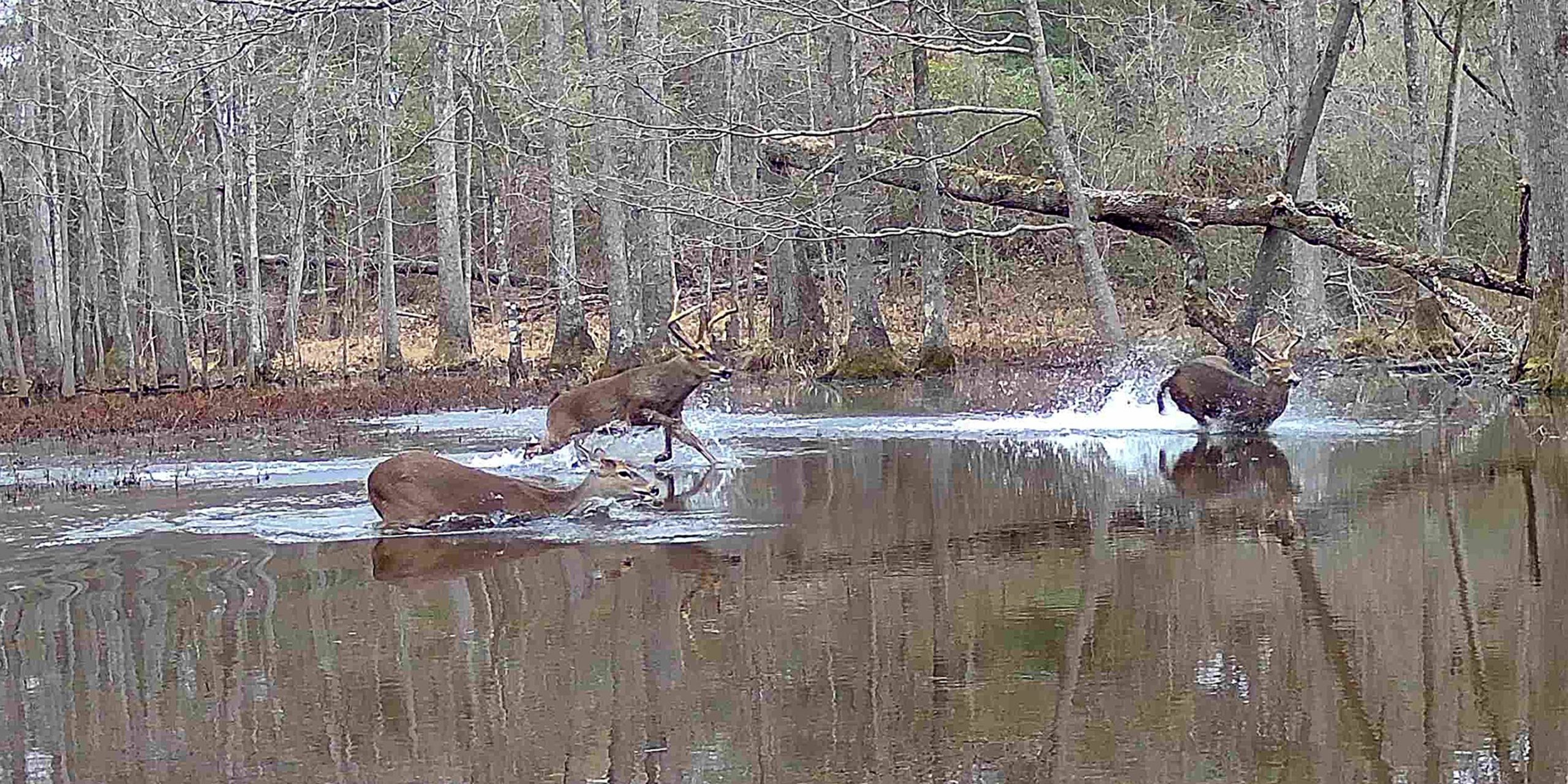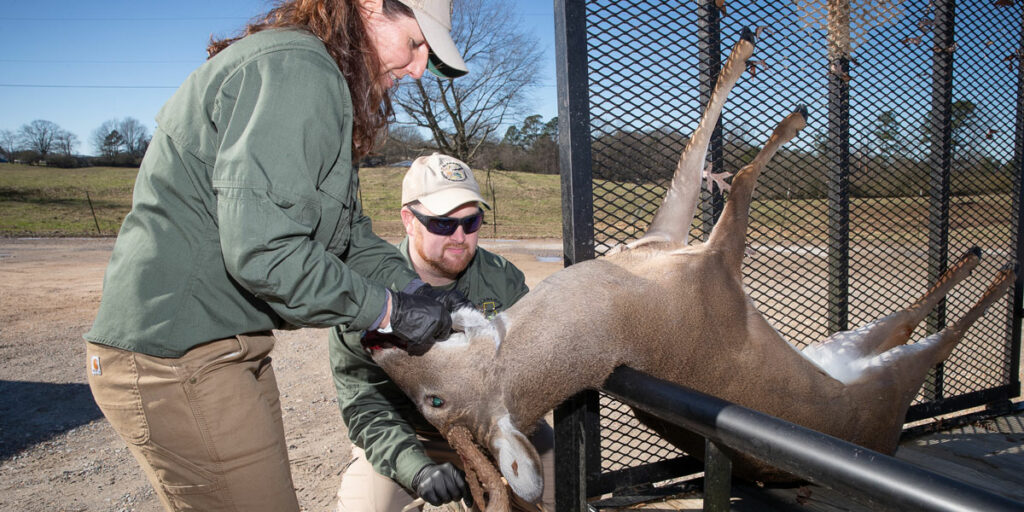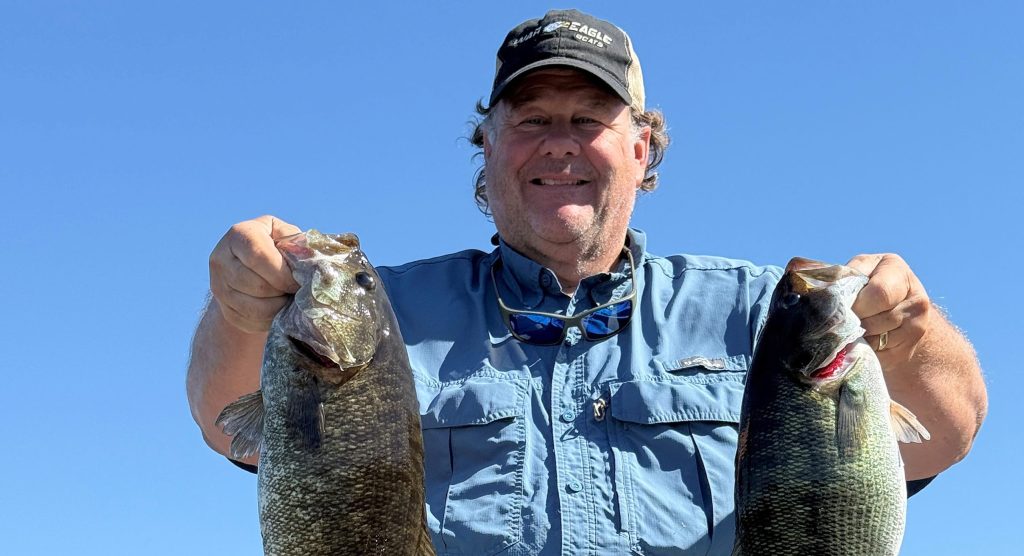MONTGOMERY — Alabama hunters will soon have an opportunity to bid on hunting leases at a live auction being conducted by the Alabama Department of Conservation and Natural Resources’ State Lands Division. State Lands has identified 140 potential hunting lease tracts across 32 counties that will be part of the upcoming 5-year lease cycle.
The public auction will be next Saturday at the Grande Hall at Old Mill Square 105 W College St., Columbiana, AL 35051. Doors will open for bidder registration at 8:15 a.m., and the auction will begin at 10 a.m. However, before you show up and start bidding, State Lands Director Patti Powell McCurdy said you need to be prepared.
“I encourage everyone to first read the Auction Announcement very carefully,” McCurdy said. “It is the official document detailing all requirements related to submitting a bid that must be followed so that a hunter’s bid actually can be considered by State Lands.”
For details on the procedure for submitting bids, visit www.outdooralabama.com/
ADCNR Commissioner Chris Blankenship said the hunting lease program expands the many excellent public hunting opportunities currently offered by the ADCNR on the state’s Wildlife Management Areas (WMAs), Special Opportunity Areas (SOAs) and various Forever Wild Land Trust tracts. No areas falling within these programs are part of the auction.
“The leasing program gives individuals the opportunity for a totally different hunting experience – a very personal one,” Commissioner Blankenship said. “Not everybody has access to family land or a hunting club. This gives the public an opportunity to lease a tract and enjoy it with family and friends. Our bidders range from hunting clubs to grandparents looking for a place to take their grandkids hunting.
“I suspect we might also have a few bidders who just want a place to get away and enjoy all by themselves. It’s just a different experience we are offering the public.”
McCurdy explained that her division conducts this auction on behalf of numerous state agencies. McCurdy considers the effort to be just one example of how State Lands fulfills its responsibility to manage a variety of state-owned land for the purpose of generating revenue – with this one having the added benefit of promoting hunting.
“Like any business that manages real estate as an asset, State Lands is charged with trying to find ways to make these tracts a revenue-generating asset for certain state agency beneficiaries such as the Department of Education and the Department of Mental Health,” McCurdy said. “To some, this might sound like an unexpected role for the Department of Conservation and Natural Resources, but really, it’s not. Employing proven conservation principles and implementing best management practices has always been directly linked to the resulting productivity of land.
“While you might see a one-time generation of revenue, you will never achieve the goal of perpetually generating revenue unless you take proper care of the land over the long term.”
The acreage of each tract is available at the link above, and the tract sizes range from 34 acres in Walker County to 1,400 acres in Tuscaloosa County. The topography of the properties includes uplands, bottomlands, as well as the foothills of the Appalachian Mountains. Some of the tracts are bow hunting only. So, out of the 140 tracts, hunters have a variety of options as to location, size and annual rental rate.
Each bidder must come to the auction with a certified or cashier’s check (no cash or personal checks) for the bid deposit in the required amount for each numbered tract. McCurdy said the required bid deposit amount can be found on the Complete Tract Listing.
“We can’t consider a bid from any individual that does not have the required bid deposit in hand,” she said. “Again, it is just so critical to read and follow all the instructions in the Auction Announcement.”
“At the time a successful bidder executes the lease, we will apply the bid deposit to the first year’s rent. If a successful bidder fails to execute the lease within the required 30-day period, the bid deposit will be forfeited and we will continue efforts to lease the tract,” McCurdy said. “So, even if you are not the highest bidder initially, you could still have a chance to lease the tract you want.”
If you can’t attend the public auction, written absentee bids will be received at the State Lands Division, 64 N Union St., Room 464, Folsom Administration Building, Montgomery, AL 36130. Written absentee bids must be received by State Lands no later than 4 p.m., May 28. Bid deposits submitted by unsuccessful bidders will be returned. Requirements for submitting a written absentee bid are detailed in the Auction Announcement at the link noted above.
McCurdy said State Lands will open the written absentee bids the day after the submittal deadline. Bidding at the May 31 auction will then start at either the minimum bid stated in the Complete Tract Listing or the amount of the highest written absentee bid that meets the requirements in the Auction Announcement.
“After the opening of the written absentee bids, we will do our best to post a listing of the highest written absentee bid received – if any – for each tract by close of business on May 29th at the same website link (see above),” McCurdy said. “That way, hunters will know what to expect the day of the auction as far as a starting point for bidding. We will then keep going to whatever amount people are willing to bid.
“Even if you submit a written absentee bid, you can still come to the auction and continue bidding to be sure you get the tract you want. If you submitted a proper bid deposit as described in the Auction Announcement with your written absentee bid, there is no need to bring an additional bid deposit for that same amount to the auction.”
McCurdy said it is also important to review the Sample Lease before bidding to be sure you are willing to comply with the lease provisions throughout the five-year term.
“One requirement is to maintain general liability insurance,” she said. “A successful bidder must also submit a list of the proposed hunters who will be on the tract. We do check those hunters for a record of game violations. Lessees are also required to provide some landowner assistance and generally return the tract to State Lands in as good or better condition than they found it.”
Examples of lease terms include provisions that restrict the use of the properties to the lessee, authorized guests and members of the lessee hunting club. The lease holder must maintain (by minimum of bush hogging) property line fire breaks to State Lands’ satisfaction. Lessee must till, fertilize and plant fire lanes, roadsides and/or approved food plots at the lessee’s expense. No new food plots or other agricultural practices are allowed without approval of State Lands. No lease can be assigned, and tract access is not guaranteed.
“My staff spends a lot of time looking at available tracts to determine if they are a good fit for this type of a hunting lease opportunity, and we utilize an appraiser to help provide information we need to set minimum bid amounts. The process involves a lot of work but is certainly worth it as the resulting leases are truly a win-win for the state and hunters. They generate revenue for state agencies and at the same time allow State Lands to offer a unique hunting opportunity to anybody willing to participate in the bid process. So, if you didn’t get the tract you wanted during bidding back in 2020, we hope you will try again as part of our 2025 Cycle.”











